
Find Help
More Items From Ergsy search
-
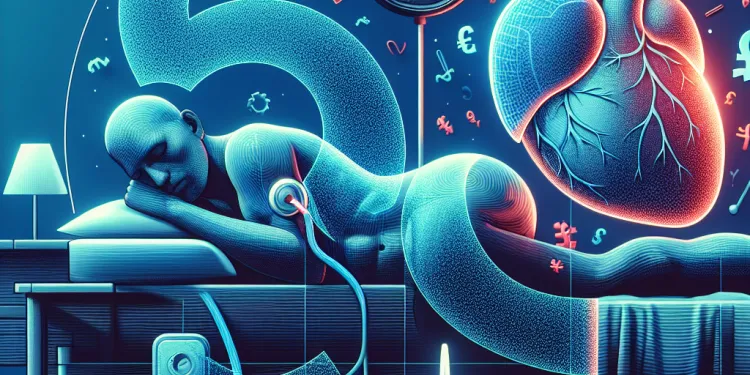
What is complex sleep apnea syndrome?
Relevance: 100%
-

What is complex sleep apnea syndrome?
Relevance: 99%
-

What is sleep apnoea?
Relevance: 68%
-

What is sleep apnea?
Relevance: 65%
-

What are the main types of sleep apnea?
Relevance: 63%
-

How common is sleep apnea?
Relevance: 61%
-

How is sleep apnea diagnosed?
Relevance: 56%
-

Can sleep apnea be cured?
Relevance: 56%
-

Does sleep apnea occur only in adults?
Relevance: 55%
-

Can children have sleep apnea?
Relevance: 54%
-

What are common symptoms of sleep apnea?
Relevance: 54%
-

Why is sleep apnea dangerous?
Relevance: 54%
-

What causes obstructive sleep apnea?
Relevance: 53%
-

What treatments are available for sleep apnea?
Relevance: 53%
-
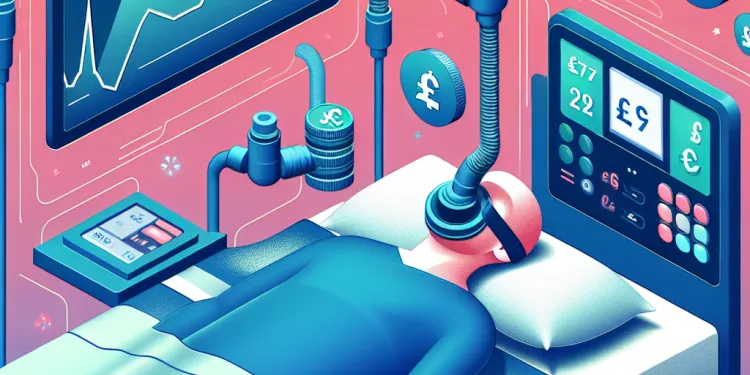
Is CPAP the only treatment for sleep apnea?
Relevance: 52%
-

Can alcohol worsen sleep apnea?
Relevance: 52%
-

What are risk factors for developing sleep apnea?
Relevance: 52%
-
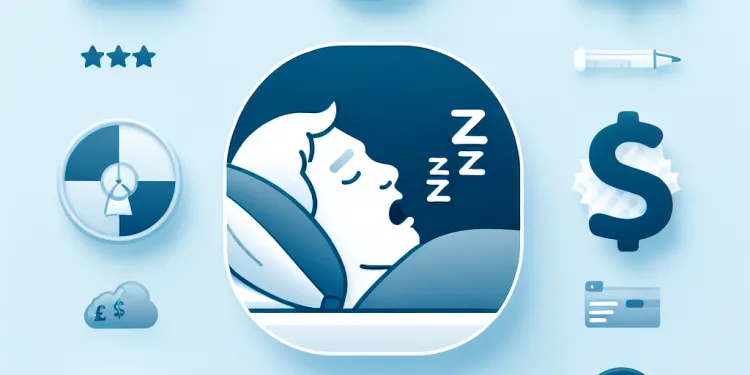
Is snoring always a sign of sleep apnea?
Relevance: 51%
-

Can weight loss improve sleep apnea?
Relevance: 50%
-

What should I do if I suspect I have sleep apnea?
Relevance: 50%
-
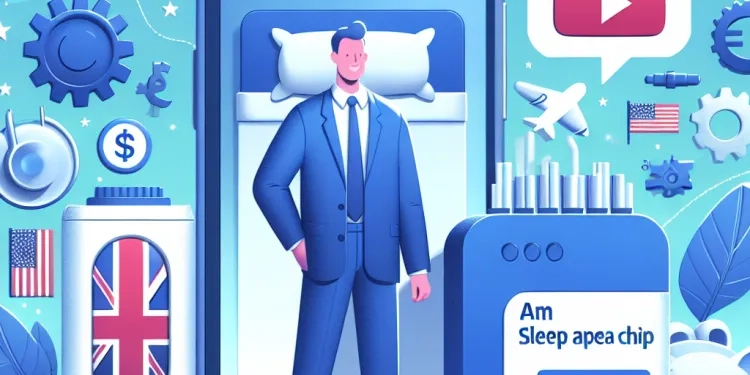
Am I eligible to try the new sleep apnea chip?
Relevance: 49%
-

How does the new Sleep Apnea Chip work?
Relevance: 48%
-

What lifestyle changes can help manage sleep apnea?
Relevance: 47%
-
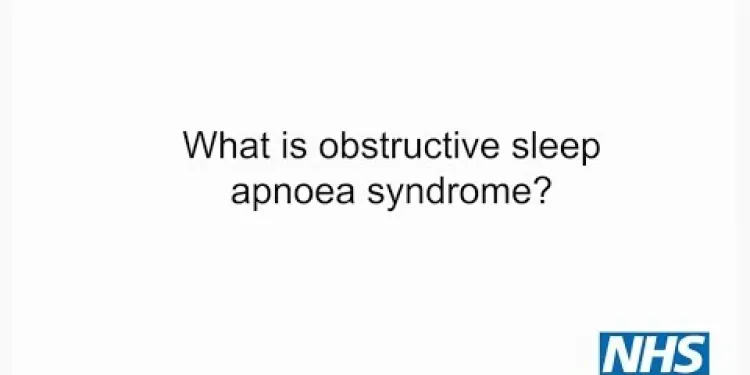
Introduction to obstructive sleep apnoea
Relevance: 40%
-
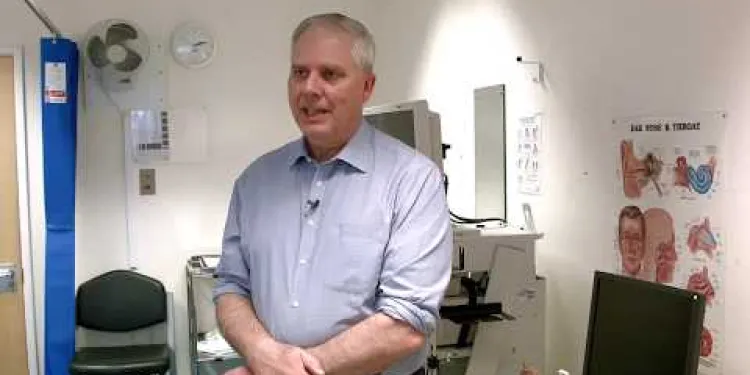
Evidence-Based Interventions: snoring surgery in the absence of Obstructive Sleep Apnoea (OSA)
Relevance: 37%
-

Can baby sleep pillows prevent flat head syndrome?
Relevance: 36%
-
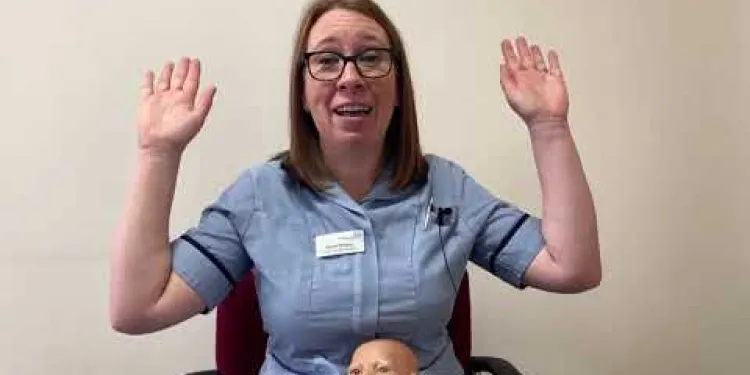
Safe sleeping and reducing the risk of Sudden Infant Death Syndrome (SIDS)
Relevance: 32%
-

Is chronic fatigue syndrome contagious?
Relevance: 31%
-

Are baby sleep pillows safe?
Relevance: 29%
-

What is chronic fatigue syndrome?
Relevance: 29%
-
What is sleep apnoea?
Relevance: 28%
-

What are the risks associated with baby sleep pillows?
Relevance: 28%
-
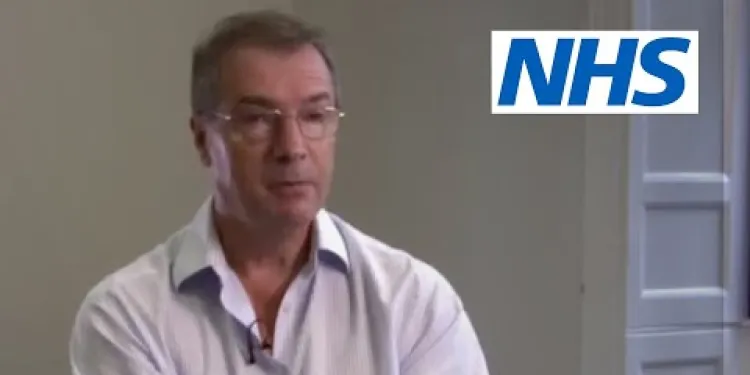
Prader-Willi Syndrome | NHS
Relevance: 28%
-

Who is at risk of developing chronic fatigue syndrome?
Relevance: 27%
-

What causes chronic fatigue syndrome?
Relevance: 27%
-

Are there any benefits to using baby sleep pillows?
Relevance: 27%
-

Is it okay to use a baby sleep positioner?
Relevance: 27%
-
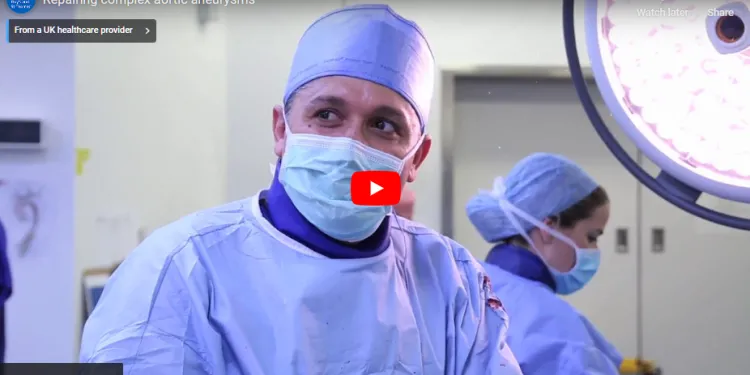
Repairing complex aortic aneurysm
Relevance: 27%
-

Is chronic fatigue syndrome a mental illness?
Relevance: 26%
-

What is Cushing's syndrome?
Relevance: 26%
What is Complex Sleep Apnoea Syndrome?
Complex Sleep Apnoea Syndrome, often abbreviated as CSAS, is a relatively newly recognized sleep disorder that combines features of both obstructive sleep apnoea (OSA) and central sleep apnoea (CSA). While sleep apnoea is widely known, CSAS is a more intricate condition, presenting challenges in diagnosis and treatment.
Understanding Sleep Apnoea
To understand complex sleep apnoea syndrome, it's essential to first comprehend the two primary types of sleep apnoea. Obstructive sleep apnoea occurs when the muscles in the throat relax excessively during sleep, causing a blockage in the airway. This results in interrupted breathing and often leads to snoring or gasping for air. On the other hand, central sleep apnoea is less about airway blockage and more about the brain's ability to send the correct signals to the muscles that control breathing. In CSA, the brain intermittently fails to send these signals, leading to disrupted breathing patterns during sleep.
Characteristics of Complex Sleep Apnoea Syndrome
Complex Sleep Apnoea Syndrome is diagnosed when an individual exhibits symptoms of both obstructive and central sleep apnoea. Typically, patients with CSAS who are treated for OSA continue to experience symptoms or even develop symptoms of CSA despite treatment. This paradox can make the condition particularly challenging. People with CSAS often struggle with regular interruptions in breathing, resulting in poor sleep quality. Symptoms include excessive daytime sleepiness, loud snoring, insomnia, and waking up frequently at night. Over time, these disruptions can lead to significant health issues such as hypertension, heart disease, and cognitive impairments.
Diagnosis and Treatment
Diagnosing CSAS requires a comprehensive sleep study conducted by a sleep specialist. This typically involves an overnight sleep study called polysomnography, where various bodily functions such as brain activity, blood oxygen levels, heart rate, and breathing patterns are monitored. Through this study, doctors can differentiate between obstructive and central events during sleep.
Treatment of complex sleep apnoea syndrome can be challenging. Continuous Positive Airway Pressure (CPAP) therapy is commonly used to treat OSA, but its effectiveness in CSAS can vary. Some patients may require Adaptive Servo-Ventilation (ASV) devices, which are more advanced than standard CPAP machines and can adjust breathing support based on real-time measurements. Lifestyle changes such as weight loss, avoiding alcohol, and positional therapy may also be recommended as supplementary treatments.
Conclusion
In recent years, awareness and understanding of complex sleep apnoea syndrome have grown, yet it remains a challenging condition to manage due to its hybrid nature. Continuous research is vital to further enhance diagnostic techniques and treatment modalities, ultimately improving quality of life for those affected by this intricate disorder.
Frequently Asked Questions
What is complex sleep apnea syndrome?
Complex sleep apnea syndrome is a condition in which patients exhibit features of both obstructive sleep apnea and central sleep apnea.
How is complex sleep apnea syndrome different from obstructive sleep apnea?
Obstructive sleep apnea is caused by a physical blockage in the upper airway, while complex sleep apnea syndrome includes both this obstructive component and a central component where the brain does not send appropriate signals to the muscles that control breathing.
What are the symptoms of complex sleep apnea syndrome?
Symptoms include loud snoring, observed episodes of stopped breathing, abrupt awakenings with shortness of breath, difficulty staying asleep, excessive daytime sleepiness, and morning headaches.
What causes complex sleep apnea syndrome?
The exact cause is not well-understood, but it is believed to be a combination of factors affecting both the upper airway and the neurologic control of breathing.
Who is at risk for developing complex sleep apnea syndrome?
Risk factors include older age, male gender, obesity, heart disorders, use of narcotic pain medications, and certain health conditions that affect breathing.
How is complex sleep apnea syndrome diagnosed?
It is diagnosed through a sleep study, also known as polysomnography, where both obstructive and central sleep apnea events are monitored and recorded.
What treatments are available for complex sleep apnea syndrome?
Treatment options may include CPAP or adaptive servo-ventilation devices, lifestyle changes, and addressing underlying conditions contributing to apnea events.
Can lifestyle changes help manage complex sleep apnea syndrome?
Yes, weight loss, avoiding alcohol and sedatives, quitting smoking, and sleeping on your side can help reduce symptoms.
Is complex sleep apnea syndrome a common condition?
It is less common than obstructive sleep apnea and is often diagnosed after standard treatments for obstructive sleep apnea are ineffective.
Can complex sleep apnea syndrome lead to other health problems?
Yes, if untreated, it can increase the risk of cardiovascular problems, poor concentration, and other health issues.
Is there a genetic component to complex sleep apnea syndrome?
Genetics may play a role in the predisposition to sleep apnea syndromes, though the specific genetic factors are not fully understood.
How does CPAP therapy help with complex sleep apnea syndrome?
CPAP therapy helps keep the airway open by providing a continuous stream of air, but its efficacy can vary especially in addressing the central component of the syndrome.
What is adaptive servo-ventilation (ASV) and how does it help?
ASV is a type of positive airway pressure device specifically designed to treat complex sleep apnea by adapting the pressure in response to detected breathing abnormalities during sleep.
Can medications be used to treat complex sleep apnea syndrome?
Medications are generally not the primary treatment for complex sleep apnea, though they might be used to manage underlying conditions.
What is the outlook for someone with complex sleep apnea syndrome?
With appropriate treatment, symptoms can be managed effectively, though it may require some trial and error to find the best treatment strategy.
What is the role of a sleep specialist in managing complex sleep apnea syndrome?
A sleep specialist can help diagnose the condition, recommend appropriate treatments, and monitor the effectiveness of therapy.
Can surgery be an option for treating complex sleep apnea syndrome?
Surgery is typically not a first-line treatment but may be considered in certain cases if there are anatomical abnormalities affecting the airway.
How is a sleep study performed to detect complex sleep apnea syndrome?
A sleep study monitors various physiological parameters like airflow, respiratory effort, blood oxygen levels, heart rate, and brain waves to identify both obstructive and central sleep apnea events.
Can complex sleep apnea syndrome go away on its own?
It is unlikely to resolve without treatment, but managing contributing factors like weight loss and lifestyle changes can improve symptoms.
Are there any ongoing research efforts related to complex sleep apnea syndrome?
Yes, research is ongoing to better understand the condition's causes, improve diagnostic methods, and develop more effective treatments.
Useful Links
This website offers general information and is not a substitute for professional advice.
Always seek guidance from qualified professionals.
If you have any medical concerns or need urgent help, contact a healthcare professional or emergency services immediately.
- Ergsy carfully checks the information in the videos we provide here.
- Videos shown by Youtube after a video has completed, have NOT been reviewed by ERGSY.
- To view, click the arrow in centre of video.
- Most of the videos you find here will have subtitles and/or closed captions available.
- You may need to turn these on, and choose your preferred language.
- Go to the video you'd like to watch.
- If closed captions (CC) are available, settings will be visible on the bottom right of the video player.
- To turn on Captions, click settings .
- To turn off Captions, click settings again.
More Items From Ergsy search
-

What is complex sleep apnea syndrome?
Relevance: 100%
-

What is complex sleep apnea syndrome?
Relevance: 99%
-

What is sleep apnoea?
Relevance: 68%
-

What is sleep apnea?
Relevance: 65%
-

What are the main types of sleep apnea?
Relevance: 63%
-

How common is sleep apnea?
Relevance: 61%
-

How is sleep apnea diagnosed?
Relevance: 56%
-

Can sleep apnea be cured?
Relevance: 56%
-

Does sleep apnea occur only in adults?
Relevance: 55%
-

Can children have sleep apnea?
Relevance: 54%
-

What are common symptoms of sleep apnea?
Relevance: 54%
-

Why is sleep apnea dangerous?
Relevance: 54%
-

What causes obstructive sleep apnea?
Relevance: 53%
-

What treatments are available for sleep apnea?
Relevance: 53%
-

Is CPAP the only treatment for sleep apnea?
Relevance: 52%
-

Can alcohol worsen sleep apnea?
Relevance: 52%
-

What are risk factors for developing sleep apnea?
Relevance: 52%
-

Is snoring always a sign of sleep apnea?
Relevance: 51%
-

Can weight loss improve sleep apnea?
Relevance: 50%
-

What should I do if I suspect I have sleep apnea?
Relevance: 50%
-

Am I eligible to try the new sleep apnea chip?
Relevance: 49%
-

How does the new Sleep Apnea Chip work?
Relevance: 48%
-

What lifestyle changes can help manage sleep apnea?
Relevance: 47%
-

Introduction to obstructive sleep apnoea
Relevance: 40%
-

Evidence-Based Interventions: snoring surgery in the absence of Obstructive Sleep Apnoea (OSA)
Relevance: 37%
-

Can baby sleep pillows prevent flat head syndrome?
Relevance: 36%
-

Safe sleeping and reducing the risk of Sudden Infant Death Syndrome (SIDS)
Relevance: 32%
-

Is chronic fatigue syndrome contagious?
Relevance: 31%
-

Are baby sleep pillows safe?
Relevance: 29%
-

What is chronic fatigue syndrome?
Relevance: 29%
-
What is sleep apnoea?
Relevance: 28%
-

What are the risks associated with baby sleep pillows?
Relevance: 28%
-

Prader-Willi Syndrome | NHS
Relevance: 28%
-

Who is at risk of developing chronic fatigue syndrome?
Relevance: 27%
-

What causes chronic fatigue syndrome?
Relevance: 27%
-

Are there any benefits to using baby sleep pillows?
Relevance: 27%
-

Is it okay to use a baby sleep positioner?
Relevance: 27%
-

Repairing complex aortic aneurysm
Relevance: 27%
-

Is chronic fatigue syndrome a mental illness?
Relevance: 26%
-

What is Cushing's syndrome?
Relevance: 26%


